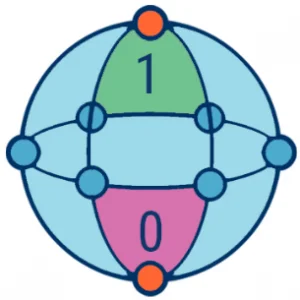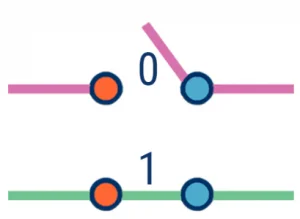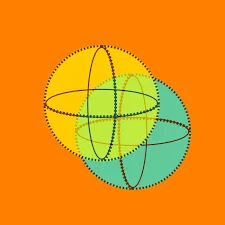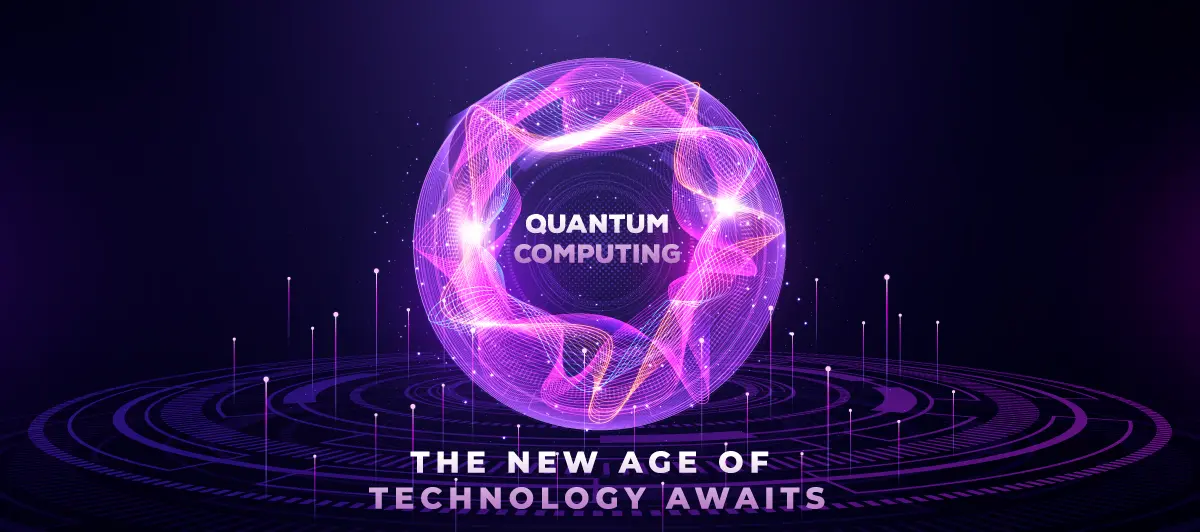What is Quantum Computing?
Quick Summary: Quantum computing harnesses the unique properties of quantum mechanics to process information at unparalleled speeds. Unlike classical computers that rely on bits, quantum computers use qubits, allowing for parallel processing and solving complex problems more efficiently. Embracing this revolutionary technology promises breakthroughs in fields from cryptography to drug discovery.
Introduction
Do you ever think about a world where the most intricate calculations challenging today’s supercomputers unravel in minutes?
Quantum computers utilize qubits, the quantum counterpart of classical bits, to perform parallel computations—promising breakthroughs in cryptography, optimization, material science, and more.
Standing on the precipice of a new technological era, exploring the realms of quantum computing unlocks doors to revolutionary advancements once thought impossible.
Let’s start this exciting topic and discover how to get or provide software development services in different ways….
Meaning of Quantum Computing
Quantum Computing is an Emerging technology focused on developing computer technologies based on quantum principles. Quantum principles explain the behavior of energy on the subatomic level. In classical computing, the computation process is simple binary computing that works with the traditional approach; Information is logically stored in bits, representing either 0 (off) or 1 (on). Like classical computers, a quantum computing system uses ones and zeros.
Still, it uses a qubit(a quantum version of a classical bit that can hold up to 2 bits of data and transmit data between qubits up to 1400 meters apart). They have a third state called “superposition” that allows them to represent zero and one simultaneously. Cooling the material to nearly zero temperature enables achieving a superposition state.



Quantum computing calculates with qubits that represent o and one simultaneously. On the other hand, classical bit computing computes through transistors capable of representing either 0 or 1 at a time. So, the Power increases exponentially in proportion to the number of qubits in quantum computing.
Hence, this is why quantum computers could dramatically outperform classical computers at tasks like optimizing delivery routes or simulating chemical processes, cryptography, cyber security, Financial modeling, and Logistics optimization. Quantum computing uses Quantum State Properties such as Superposition and Entanglement for the computation process.
Qubits
How It Was Built?
Creating a qubit involves building the surrounding solid in layers using semiconducting materials like silicon and germanium. Scientists find a spot in the material where they can access and control quantum properties.
Once they succeed, using a photomagnetic or magnetic field, they can create superposition, entanglement, and other quantum properties. It is the basic unit of Quantum Information (data for Quantum State). You can build by using any two-level quantum system. There are many ways to make qubits, but we can‘t find a proper optimal method to build qubits.
Environment To Form Qubit
Quantum bits(qubits) can not easily stay in a superposition where they contain both 0 and 1 because of fast decoherence time; their ‘memory’ is very short-lived. It is also hard to maintain such a low temperature. So, making hardware that can support lower temperature levels is challenging. In a real-life scenario, we cannot make such kind of hardware till now. Hence, This implies describing them as a single unit in entanglement. Recently, IBM built a Quantum processor, ‘Eagle,’ which can handle 127-Qubits.
What Is Quantum Superposition?
Quantum Superposition is the state where a quantum particle exists in 2 distinct locations simultaneously. Qubits have this property, which is why quantum computers have Exponential computation speed. It allows qubits to live in more than one state simultaneously.

What Is Quantum Entanglement?
Quantum Entanglement is one of the essential quantum properties in quantum computing. It allows two or more quantum particles (qubits) to become entangled. When these quantum particles become entangled, they become a single system. It implies describing them as one unit in entanglement.
Quantum entanglement gives quantum particles more computing power because it adds more qubits. Whenever we apply an operation to one particle (qubit), it also correlates to the other entangled particles (qubit).
Use Cases Of Quantum Computing
Cybersecurity And Cryptography:
Nowadays, the online security space is exceptionally vulnerable because of the increased number of cyber-attacks occurring worldwide daily. So, companies are making necessary security frameworks in their organizations, and it becomes daunting and impractical for classical digital computing techniques.
So, cybersecurity has continued to be an essential concern. Our increased dependency on digitalization makes us even more vulnerable to these threats. Quantum computing, with the help of machine learning, can develop various methods to resist these cybersecurity threats. Quantum computing enables us to create highly secure encryption methods, called quantum cryptography.
AI & ML
Quantum computing can also be used in Artificial Intelligence. Some of the widespread applications we can see in daily activities are voice, image, and handwriting recognition. However, as the number of applications increases, it becomes challenging for classical computers to compute accurately and fast. Quantum computing can help in processing complex problems in very little time, which would have taken classical computers many years.
Quantum Simulation:
We can simulate other quantum systems like photosynthesis and superconductivity with quantum computers because they have quantum phenomena in computation.
Conclusion
Quantum computing is a source of potential in an age of technology constantly advancing. To harness this, take help from us. We at BigScal provide the gateway to quantum-powered solutions. Through partnerships, research, and development, BigScal equips businesses with the tools to harness quantum computing’s prowess, driving innovation and gaining a competitive edge.
FAQ
What is quantum computing in simple words?
Quantum computing is a distinct form of computation that is empowered by quantum physics. Therefore it allows solving of several other problems faster than it is possible with the traditional computers.
What is quantum computing used for?
Ideas such as change in cryptographic methods, optimization problems, and material sciences, are some of the fields which will be opened with the help of quantum computers. It can perform computations that have virtually been beyond the capacity of conventional computers, including factoring large numbers rapidly, providing accurate simulations of quantum systems, and optimizing intricate supply chain networks or drug development methods, amongst others.
Will quantum computing help AI?
Although currently not fully employed in current AI computing systems, quantum technologies have the potential to enhance artificial intelligence computing especially where large computations are required in machine learning.
What problems can be solved by quantum computing?
Given that the field of quantum computing is still in its infancy, and has potential for a rise in usability, it also has potential for the solution of problems such as cryptography, optimization, material science, and machine learning. It outperforms in scenarios that need mapping, vast parallelism, and computation of multiple operations simultaneously. Nevertheless, its effectiveness remains somewhat limited due to technicalities involved and issues with degradation as more users engage in it.
Why is quantum computing so powerful?
One of the major strengths of quantum computers is its processing method using small particles known as quantum bits or qubits, which are entities that exist in more than one state at a time. This allows it to perform a lot of calculations at once, thereby improving the number-crunching speed many folds. Features such as entanglement and superposition are quantum advantages that enhance the computational capability, specifically for optimizing the solution of complex problems compared to the use of classical computers.





